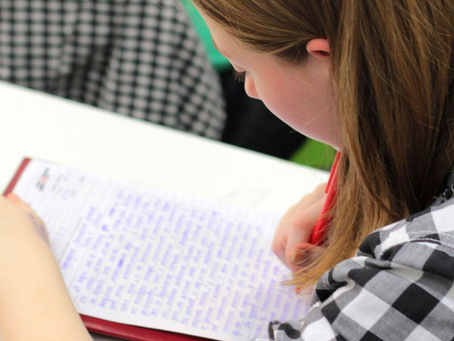top of page


The Power of Spaced Repetition: Train Your Brain Like a Muscle
If you’ve ever tried cramming for hours only to forget everything later, you’re not alone. Your brain isn’t designed for overload, it thrives on repetition over time. Spaced repetition turns revision into a smart, science-backed strategy that helps you remember more with less effort. Why Spacing Matters for Memory Your brain forgets information quickly unless it’s revisited. The “spacing effect” means reviewing material at increasing intervals helps strengthen memory pathways
Aja Clarke
5 days ago1 min read


The Science of Sleep: Why Your Brain Revises While You Rest
If you’ve ever stayed up all night before an exam, you’ve probably noticed how little you remember the next day. That’s because sleep isn’t a luxury — it’s a vital part of the revision process. Why Sleep Matters for Learning During sleep, your brain sorts and strengthens the information you’ve learned. This process, called memory consolidation , transfers short-term memories into long-term storage. Without enough rest, your brain struggles to keep what you studied. The Scienc
Aja Clarke
6 days ago1 min read


Memory Palace Magic: Turn Your Bedroom into a Mind Map
Imagine walking into your bedroom and seeing your English quotes hanging on the wall or your science formulas sitting on your desk. That’s the Memory Palace Technique a creative way to turn familiar spaces into memory triggers. How It Works The technique, also known as the method of loci , involves linking information to physical locations. Your brain is excellent at remembering places, so attaching facts to them makes recall easier. For example: Place Shakespeare quotes on
Aja Clarke
6 days ago1 min read


Pomodoro Power: Study Smarter, Not Longer
If you find yourself losing focus after half an hour of revision, you’re not alone. Concentration fades quickly, which is why the Pomodoro Technique has become a favourite among students. It helps you stay productive without burning out. What Is the Pomodoro Technique? The Pomodoro Technique breaks your revision into short, focused intervals: 25 minutes of studying (one “Pomodoro”) 5 minutes of restAfter four Pomodoros, take a longer 15–30 minute break. Why It Works Short bu
Aja Clarke
6 days ago1 min read


Active Recall vs Passive Reading: How to Remember More in Less Time
Reading your notes might feel productive, but it’s one of the least effective ways to revise. To remember information long term, your brain needs to work for it that’s where active recall beats passive reading every time. What Is Passive Reading? Passive reading is when you simply reread or highlight information. It’s easy and comfortable, but your brain stays in “observer mode” rather than “memory mode.” What Is Active Recall? Active recall means testing yourself instead
Aja Clarke
6 days ago1 min read
bottom of page